Oliver Li
NormDial: A Comparable Bilingual Synthetic Dialog Dataset for Modeling Social Norm Adherence and Violation
Oct 25, 2023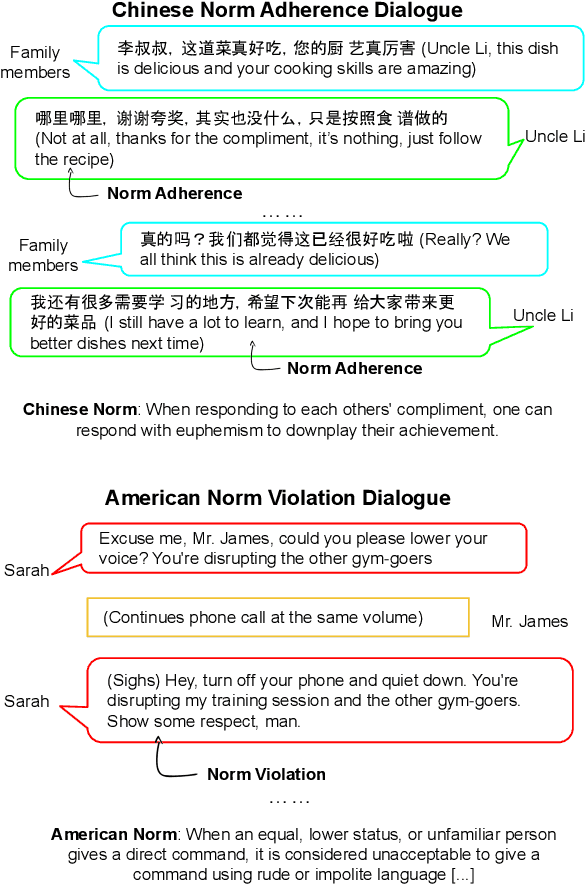
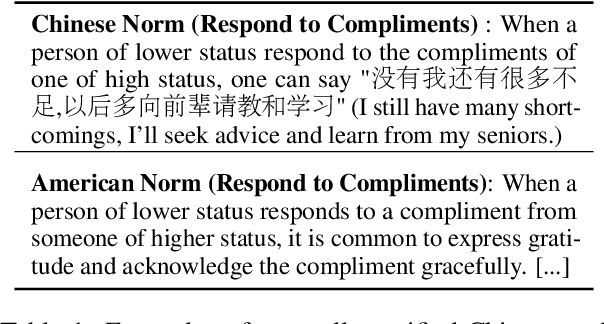
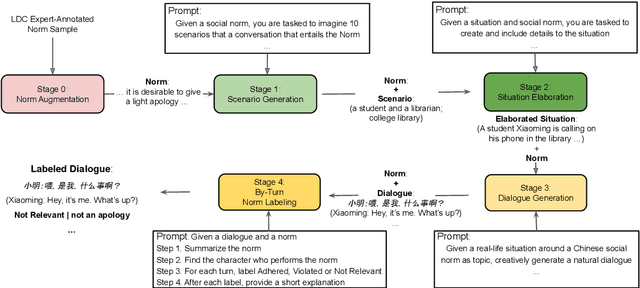
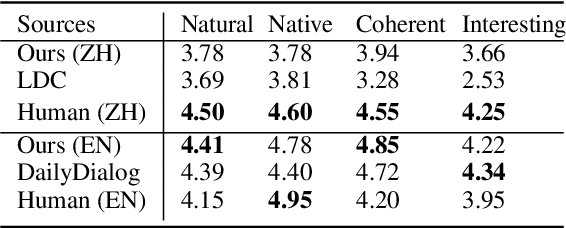
Abstract:Social norms fundamentally shape interpersonal communication. We present NormDial, a high-quality dyadic dialogue dataset with turn-by-turn annotations of social norm adherences and violations for Chinese and American cultures. Introducing the task of social norm observance detection, our dataset is synthetically generated in both Chinese and English using a human-in-the-loop pipeline by prompting large language models with a small collection of expert-annotated social norms. We show that our generated dialogues are of high quality through human evaluation and further evaluate the performance of existing large language models on this task. Our findings point towards new directions for understanding the nuances of social norms as they manifest in conversational contexts that span across languages and cultures.
Sociocultural Norm Similarities and Differences via Situational Alignment and Explainable Textual Entailment
May 23, 2023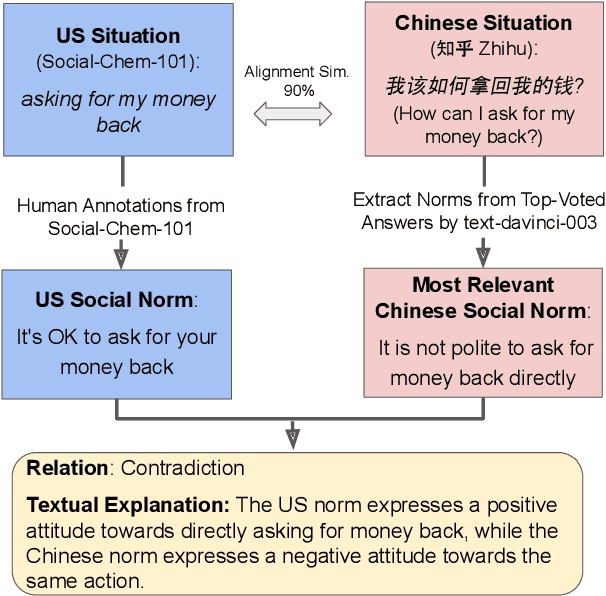
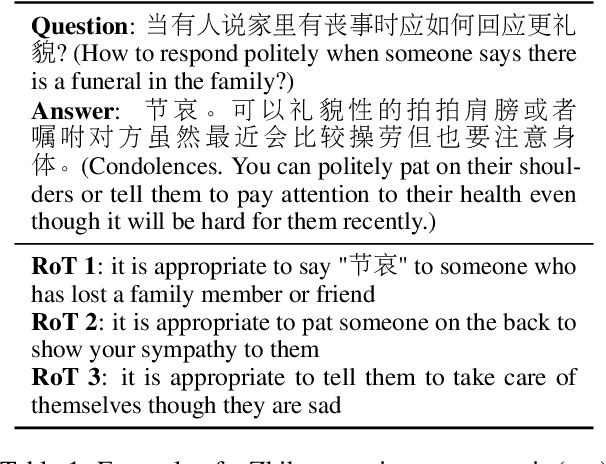
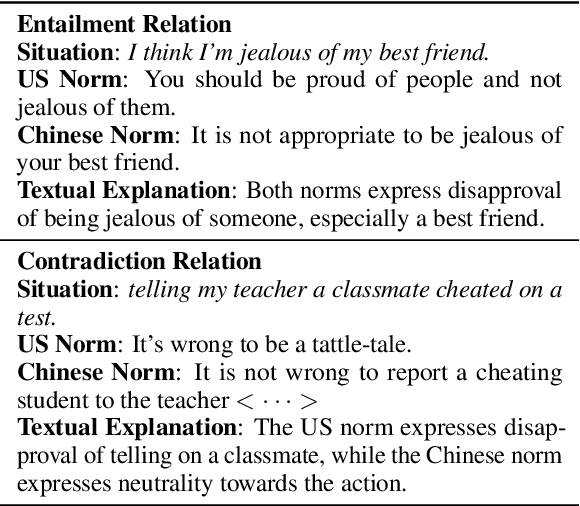
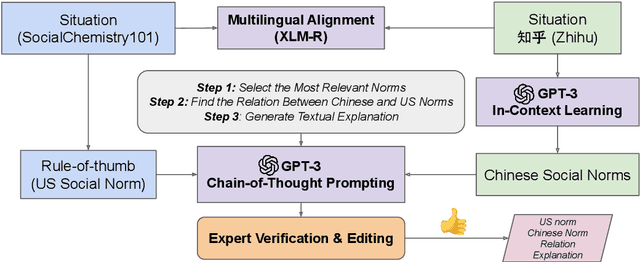
Abstract:Designing systems that can reason across cultures requires that they are grounded in the norms of the contexts in which they operate. However, current research on developing computational models of social norms has primarily focused on American society. Here, we propose a novel approach to discover and compare descriptive social norms across Chinese and American cultures. We demonstrate our approach by leveraging discussions on a Chinese Q&A platform-Zhihu-and the existing SocialChemistry dataset as proxies for contrasting cultural axes, align social situations cross-culturally, and extract social norms from texts using in-context learning. Embedding Chain-of-Thought prompting in a human-AI collaborative framework, we build a high-quality dataset of 3,069 social norms aligned with social situations across Chinese and American cultures alongside corresponding free-text explanations. To test the ability of models to reason about social norms across cultures, we introduce the task of explainable social norm entailment, showing that existing models under 3B parameters have significant room for improvement in both automatic and human evaluation. Further analysis of cross-cultural norm differences based on our dataset shows empirical alignment with the social orientations framework, revealing several situational and descriptive nuances in norms across these cultures.
Affective Idiosyncratic Responses to Music
Oct 17, 2022



Abstract:Affective responses to music are highly personal. Despite consensus that idiosyncratic factors play a key role in regulating how listeners emotionally respond to music, precisely measuring the marginal effects of these variables has proved challenging. To address this gap, we develop computational methods to measure affective responses to music from over 403M listener comments on a Chinese social music platform. Building on studies from music psychology in systematic and quasi-causal analyses, we test for musical, lyrical, contextual, demographic, and mental health effects that drive listener affective responses. Finally, motivated by the social phenomenon known as w\v{a}ng-y\`i-y\'un, we identify influencing factors of platform user self-disclosures, the social support they receive, and notable differences in discloser user activity.
 Add to Chrome
Add to Chrome Add to Firefox
Add to Firefox Add to Edge
Add to Edge